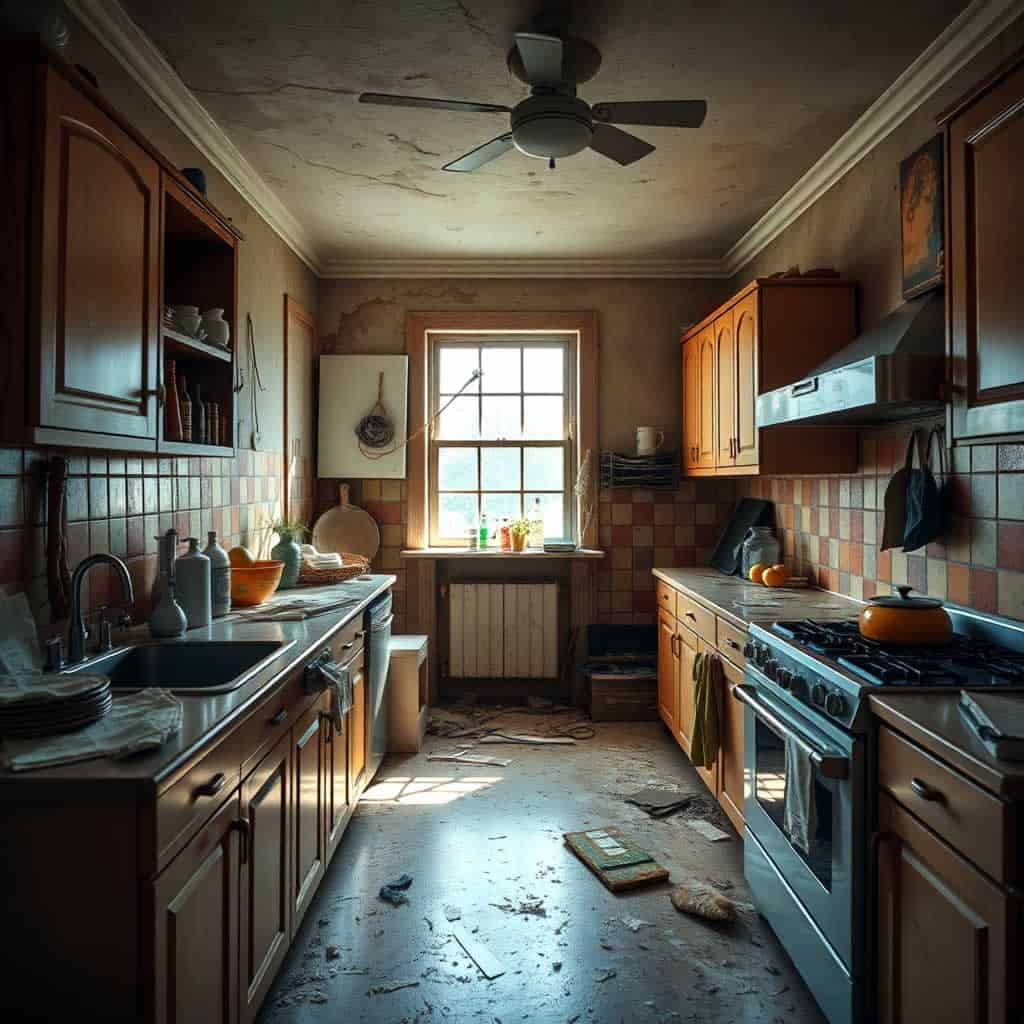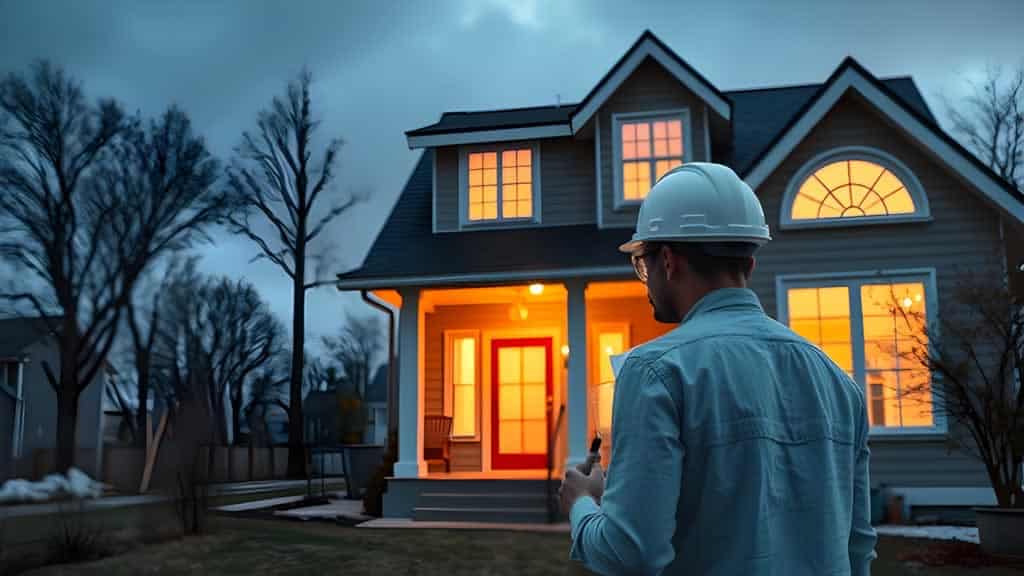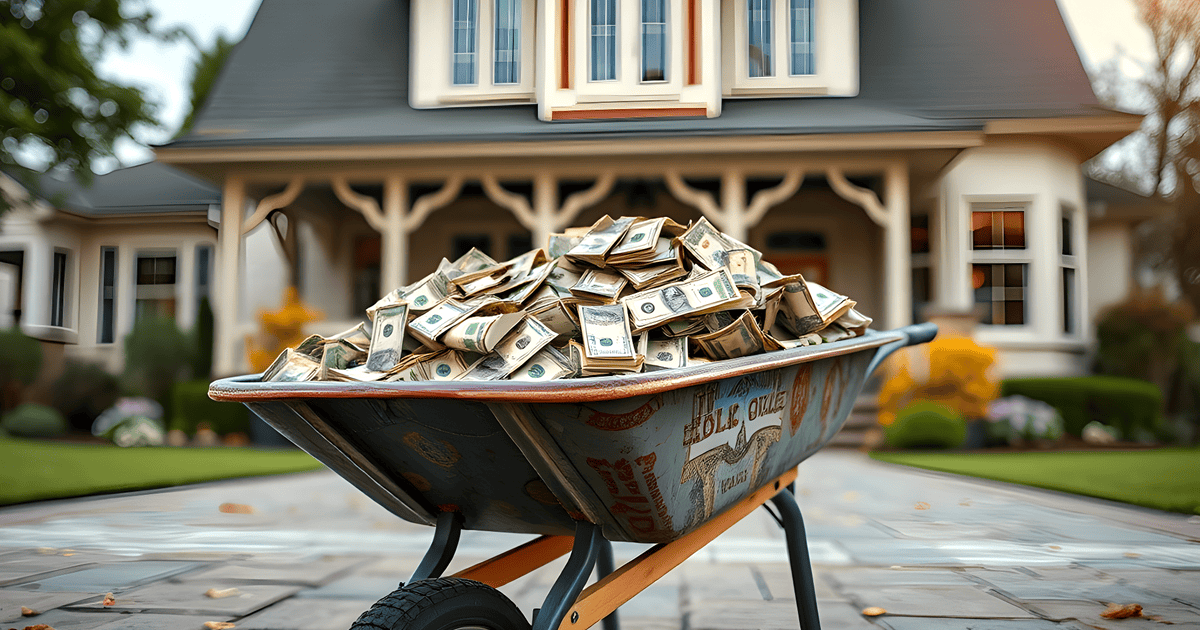Samantha Jenkins had been trying to sell her home for months, but it wouldn't budge. Despite lowering the price three times and renovating every room in sight, she couldn't understand why potential buyers passed on her property.
She felt frustrated with real estate agents who seemed unconcerned about what was going wrong. But then, one day, Samantha had a chance encounter at an open house event with a seasoned agent named Mark, who offered some unexpected advice: “Maybe you're pricing it right but not marketing it correctly.”
Samantha didn't think she'd done anything ‘wrong,' so they discussed her entire strategy in detail. When asked about her home staging choices and virtual tour quality, Mark realized that Samantha was unknowingly falling into common pitfalls many sellers fall into when trying to sell during a buyer's market.
Her eyes lit up as it clicked: “I had no idea my lack of curb appeal could impact the whole sale process.” Mark explained how her outdated landscaping, dull paint colours, and poor online presentation might have scared off potential buyers before ever stepping inside.
…outdated landscaping, dull paint colours, and poor online presentation might have scared off potential buyers before ever stepping inside.
This harsh reality made Samantha think that a home's true value is in its ability to evoke emotions from those who view it. When homes don't resonate with the target audience on an emotional level, no price can justify their worth or convince people of what they are truly looking for in real estate.
You may wonder how many homeowners struggle like Samantha, losing valuable time due to misaligned strategies. We'll cover crucial insights, so you understand the things that often go unnoticed by even experienced sellers – until now.
A common phenomenon is that many real estate agents are too focused on selling rather than helping their clients. While most see it as just another transaction, there is more to this process.
Discover now the 10 things people don't realize about how a home seller must operate effectively during these conditions – so your sale will become everything you wanted and expected.
Overestimating the Value of Instant Curb Appeal
You overvalue curb appeal as a determinant of sale price.
For instance, you've seen homes in your neighbourhood sell for high prices with perfectly manicured lawns and immaculate paint jobs. You think, “If I just tidy up my front yard and give it a fresh coat of paint like those houses on Elm Street did when they sold so quickly.”

“My house will be worth at least $200,000 more if the garden looks perfect… If we add that new deck outside, potential buyers won't even notice our kitchen needs some work.”
This might stem from having a childhood where your home life was associated with how it looked. Your parents were proud of their neat house and worried when messes appeared.
Overestimating the value of curb appeal can lead you to invest more time, money, and stress into making cosmetic changes rather than addressing deeper issues like a functional kitchen space or potential structural problems.
This ends in wasted resources without considering whether these superficial improvements will significantly impact the sale price as much as expected.
Underpricing to Attract Lowball Offers
You set an initial price lower than your home's actual worth, hoping it will attract buyers and avoid lowball offers.
It may seem like a clever strategy at first. After all, you want to make a sale as quickly as possible in today's competitive market.
But this approach often backfires with disastrous consequences: the wrong type of buyer is attracted – those willing to take advantage of your mistake!
This often leads to not just one lowball offer but several. Some buyers will test how much further down you'll go, driving negotiations even lower than expected.
You may find yourself locked into a price so far below market value that it's difficult or impossible to recover – potentially wasting thousands on the sale.
This behaviour creates an expectation: You believe underpricing will give you more negotiating power. However, what happens is buyers sense they have leverage.
They start offering less and getting away with it, a vicious cycle that makes every potential buyer think, “I can get this for cheaper.”
This approach might be rooted in memories of when friends or family members got overcharged for goods. Alternatively, you may've seen lowball tactics work against others on reality TV shows like Million Dollar Listing and believe those strategies will benefit you.
By underpricing your home initially, what really happens is a distorted sense of value that influences all future transactions in similar situations – ultimately limiting the profit from sales significantly over time.
Not Prepping for Last-Minute Repairs and Fixes
Surprise repairs catch you off guard, which can quickly escalate costs and lower your sale price.
A simple leaky faucet or worn-out appliance in one inspection could turn a potential buyer away from making an offer altogether. This is especially true when you haven't budgeted for emergency fixes ahead of time.

You spend valuable money on repairs at the last minute, scrambling to meet deadlines and juggling multiple bids as you try to get your home in order.
This creates unnecessary stress and financial pressure that could've been avoided with some simple planning. You're left wondering what might have happened if only you had anticipated these needs earlier.
Homeowners often avoid dealing with such costs after the trauma of their first major repair expense – a costly HVAC replacement or pipe bursting incident.
In response, they brush off signs that maintenance work is overdue, telling themselves, “It's fine,” and putting things off until it becomes absolutely necessary. This mindset might've been learned from dealing with unexpected expenses earlier in life.
This pattern leads you into financial trouble and loss of confidence when selling your home. If left unchecked, it could make future homeownership experiences even more stressful than they need to be, preventing you from fully enjoying the freedom and security a new place can bring – something we wish all buyers knew about before jumping in headfirst!
Waiting Until the Last Minute to Stage Your Home
You might not realize that procrastination can lead to missed opportunities.
Many people put off decluttering and staging their homes until it's almost sold.
Like when you wait till your house has a pending offer before scrubbing out old stains on the walls, which may deter potential buyers with its lingering smell.
Your internal response might be: “It'll sell anyway,” but that mindset could keep you from maximizing profit and appeal.
When it comes down to it, sellers often rationalize their hesitation as an effort-saving exercise.
This tendency stems partly from being in a hurry or fear of the unknown sale process. Fear might drive you not to make room for even simple tasks like changing light bulbs.
With this mindset, we may miss out on significant returns because your home could be presented more attractively with some quick effort.
This approach can reduce profit due to missed potential buyers or a lower sale price.
And worse still, the stress and regret you might feel if you'd known better when selling your home during this market.
Taking Potential Buyers' Feedback Personally
It's easy enough when dealing with rejection on your home selling journey, but taking potential buyers' feedback personally can be a major stumbling block. You may feel like you've been given a personal critique instead of constructive criticism about your property.
You find yourself getting defensive or feeling hurt by comments that are intended to help you sell your house faster and for more money.

If you grew up in an environment where opinions from others were often critical, it's common to internalize every negative comment. You may feel like their words cut deep into your identity as a homeowner.
You start thinking that if the potential buyers didn't “get” something about your home or neighbourhood, there must be something wrong with you.
As a result, you develop an internal narrative where every negative comment is taken as proof that people don't like what they see. You may feel pressure to justify why the house won't sell fast enough.
The fear grows inside you: What's wrong? Did I do something bad with my interior design choices?
You might end up being overly focused on potential buyers' reactions, replaying conversations over in your head and beating yourself up for every tiny thing that didn’t go right.
Overlooking the Importance of Good Photos in Online Listings
You may be overlooking one simple yet crucial element in your home's online listing that makes a big difference in attracting potential buyers.
Poor-quality photos can deter interested buyers and decrease foot traffic. You might attribute this to other factors, such as pricing or location. However, you'd be surprised at how often low-quality visuals are the actual reason for a lack of interest in your home.
This tendency may stem from a recent house showing where potential buyers didn't seem too impressed by the interior pictures in ads but purchased it anyway due to great first impressions during viewings. This might have led you to believe that photos aren’t crucial when really they are key.
By not investing time and resources into taking professional or well-staged listing images, potential buyers who visit your home may compare the real-life visuals with lower-quality pictures online, which could result in an unpleasant surprise.
This can lead to missed opportunities for a faster sale at your asking price.
Failing to be Open About Flaws and Needed Repairs
You fail to mention potential problems with your home upfront, hoping they won't scare off buyers.
A little white lie seems harmless at first. You genuinely believe it's better for you if a buyer doesn't know about that water leak or minor roof issue yet.
This omission can lead to some serious consequences later on in the process.

You become overly focused on selling your home as quickly as possible, often resulting from an exaggerated urgency created by feeling pressure.
Your real estate agent may tell you it's okay to be honest about flaws with buyers down the line, but this can feel like a hard pill to swallow for someone trying their best.
You find yourself telling small fibs or omissions in conversations, hoping they won't affect your sale. This behaviour leads to more and more white lies as you become uncomfortable talking about real flaws with potential buyers.
Perhaps this pattern is influenced by an experience where an unscrupulous seller got away without revealing major issues that became apparent during the inspection process later on.
It may have been ingrained in your thinking through fear or misinformation, and maybe you grew up around people who hid problems from buyers and sellers alike.
Your local real estate market could be competitive enough for this behaviour not to be noticed, but it will last once potential homebuyers dig deeper.
This strategy results in losing trust with your agent as they struggle to find suitable bidders due to the omissions you made at first. On top of that, buyers might end up walking away when real issues are discovered during an inspection.
Comparing Yourself to Other Sellers
You get caught up comparing your home's price and sale speed with other sellers.
This constant comparison creates a sense that you're falling behind.
It fuels anxiety about how well your house is doing on the market compared to others, making it feel like something is wrong with your property or agent.
So, this cycle can lead to impulsive decisions based solely on what others are doing. You might lower prices hastily just because someone else did.
You ignore valuable feedback from potential buyers and real estate agents who think a higher price will yield better returns in the long run.
This tendency may stem from past experiences where you felt pressure to keep up with peers or family members, making comparisons feel like a normal part of life. You might have grown up comparing grades or possessions as a way to measure success and status.
Consequently, this mindset can lead you down the path that what's important for one house is more valuable than its condition and unique features, making it harder to sell your home at true value.
Misjudging Local Real Estate Agent Advice
You often seek out opinions from real estate agents but don't realize that they might not always have your best interests in mind.
This leads to an over-reliance on their advice and a failure to do thorough research. You end up with unrealistic price expectations or a lack of understanding of local market conditions.
If you've had past experiences where real estate agents seemed pushy or untrustworthy, it's natural that you'd be wary but still seek out their opinions without fully vetting them.
This can lead to costly mistakes and a sense of regret. Over time, your lack of discernment in selecting an agent erodes confidence and trust issues regarding the real estate process as a whole.
Holding Onto Unrealistic Expectations for a Quick Sale
You're holding onto a sale price that's unrealistic. This is due to being heavily influenced by online property listings, often posted at prices beyond your area.
At times, you feel pressure to list high and then reduce as needed. When this approach doesn't work, frustration can set in, leading to feelings of powerlessness.
Growing up with family members who overpriced homes has made you think your home is worth more than the market suggests.
This background fuels a desire for what's “normal” rather than looking at comparable sales data. When emotions get in the way, it becomes hard to trust the process.
This results in holding onto an unsellable home, along with a feeling that you're being held back from moving forward by unrealistic expectations about your property's value
Selling Your Home in a Buyer's Market Requires More Than Just Competitive Pricing
Selling your home in a buyer's market can be challenging.
It requires understanding how much your house is worth and being aware of what buyers see as valuable.
Knowing these often-overlooked factors can make all the difference between selling your home in record time for top dollar. You're not just trying to sell a house; you're navigating an emotional journey where buyers emotionally connect with potential homes.
Don't get stuck on what could have been done differently – now is your chance to take control of the steps ahead, learn from them and grow stronger as a seller in this competitive market.



